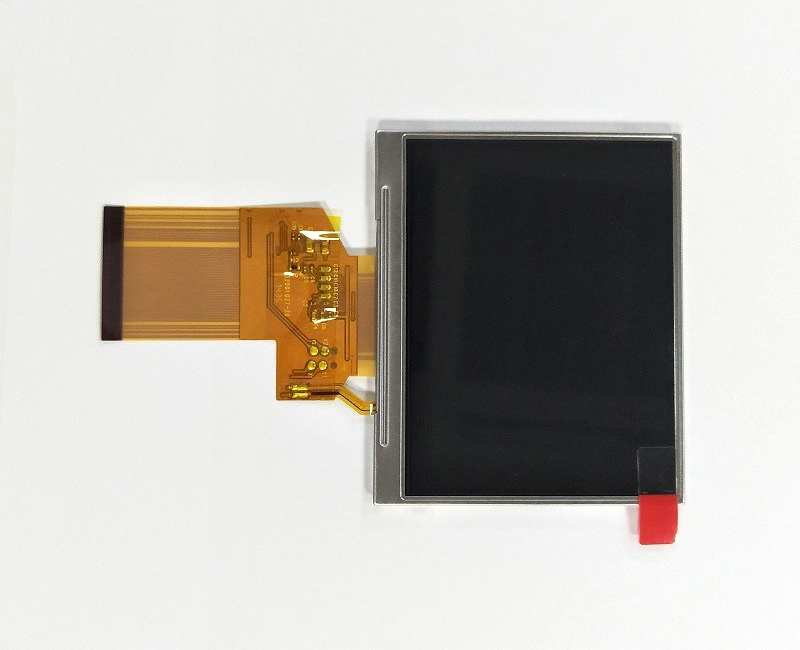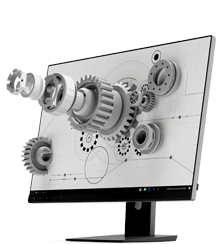What are the main resolutions and interfaces of a 3.5-inch LCD screen?

The resolution and interface type of a 3 5-inch LCD screen vary depending on the application scenario Common resolutions of 320 * 240, 320 * 480, and 480 * 320 are widely used in industrial control and portable medical devices, suitable for displaying
The resolution and interface type of a 3.5-inch LCD screen vary depending on the application scenario and technical requirements. Here is a detailed summary:
I. Main resolution
1. Common resolutions
320 × 240 (QVGA): Widely used in industrial control, portable medical devices (such as blood glucose meters, blood pressure monitors), and basic display scenarios, suitable for text and simple graphic display.
320 × 480 (HQVGA): Commonly seen in vertical screen devices, such as handheld terminals or some medical instruments, providing higher vertical display space.
480 × 320 (HVGA): The typical resolution of landscape devices, suitable for interface designs that require landscape layout, such as in car navigation or smart home control panels.
2. High resolution options
640 × 480 (VGA): Supported by some high-end models, it is used in scenarios that require high image detail, such as portable ultrasound devices or industrial monitoring interfaces.
800 × 480 (WVGA): Used by a few industrial grade screens, suitable for displaying complex waveforms or high-precision images, such as electrocardiographs (ECG) or aerospace control panels.
II. Common interface types
1. SPI (Serial Interface)
Features: Simple wiring, low cost, but slow transmission speed.
Application: Suitable for small devices or scenarios with low speed requirements, such as basic medical equipment or low-power handheld terminals.
2. MCU (microcontroller interface)
Type: Includes 8-bit, 16 bit, or 18 bit parallel interfaces, supporting direct connection to microcontrollers.
Advantages: Flexible control, suitable for embedded systems, commonly used in industrial instruments and access control systems.
3. RGB interface
Features: Analog signal transmission, supports high color reproduction, suitable for applications that require rich color expression (such as medical image display or consumer electronics products).
Subdivision: Some models support 6-digit, 16 bit, or 18 bit RGB interfaces.
4. Parallel interface
Advantages: Fast transmission speed, suitable for scenarios that require real-time refresh (such as industrial automation control).
Disadvantages: Complex wiring and high cost.
5. Special interfaces
I2C: Used for low-speed scenarios of multi device communication, such as sensor integrated devices.
MIPI: Supported by a few high-end models, suitable for high-resolution and high refresh rate requirements.
CAN bus: designed specifically for industrial or automotive devices, supporting long-distance stable communication, such as smart car dashboards.
III. Resolution and interface compatibility
Low resolution (such as 320 × 240): usually paired with SPI or MCU interfaces to meet basic display requirements.
Medium to high resolution (such as 480 × 320 or 640 × 480): RGB or parallel interfaces are often used to ensure data transmission speed and image quality.
High resolution (such as 800 × 480): requires the use of high-performance driver chips and RGB interfaces to reduce latency and image tearing.
IV. Technology Trends and Selection Suggestions
Resolution upgrade: With the increasing demand for details in the medical and industrial fields, resolutions of 800 × 480 and above are gradually becoming popular.
Diversified interfaces: Some screens support multiple interface combinations (such as RGB+SPI) to meet the needs of different devices.
Special scenario adaptation: For example, medical equipment needs to choose models with wide temperature range (-20 ℃~70 ℃), high brightness (>1000nit), and high contrast (>1000:1).
For specific model parameters (such as Kyocera TCG035QVLADANN-AN50 or Tianma TM035KDH03, INNOLUX LQ035NC111), please refer to the specifications of the relevant suppliers.
INNOLUX 3.5-inch LCD screen :https://www.idtdisplay.com/products/innolux-lcd/3-5inch/










